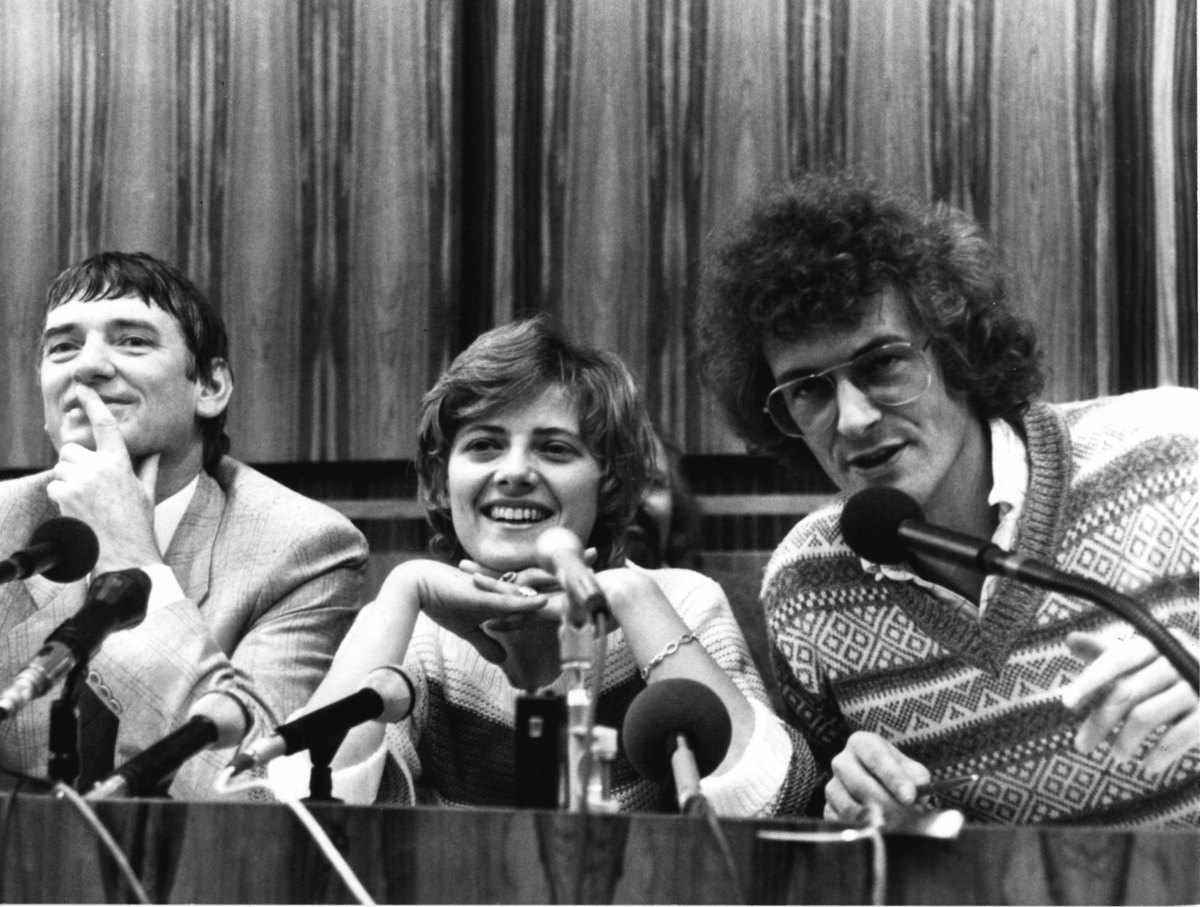Abstract
In the Bundestag elections of March 6, 1983, the Greens secured 5.6%
of the vote—enough for them to enter the West German parliament for the
first time since the party was founded three years earlier. At a press
conference in Bonn the day after the election, the future spokespersons
for the Green Party parliamentary group, Otto Schily (left) and Petra
Kelly (center), as well as the speaker of the federal executive
committee of the Greens, Rainer Trampert (right), discussed their
success. In the early 1980s, the Greens were an ideologically
heterogeneous movement: Schily belonged to the pragmatic practitioners
of Realpolitik (“Realos”) and
advocated a coalition with the SPD; Kelly and Trampert, on the other
hand, were idealistic fundamentalists (“Fundis”). There were also a
number of other individualistic currents within the party, including one
that supported conservative values.
